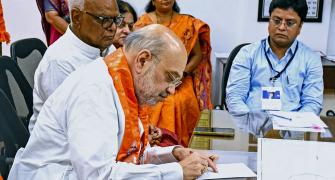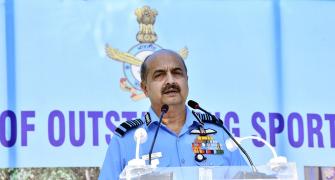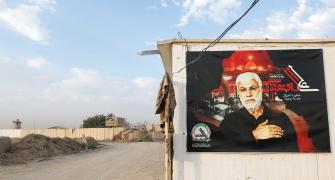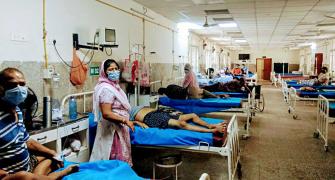Indian (erstwhile Indian Airlines) operates over 300 daily flights. Jet operates 290 and its new acquisition, Sahara, another 250-odd. Kingfisher has 100-odd daily flights and Air Deccan has 200 while SpiceJet has around 40.
Even Air India operates over 200 flights per week from Indian cities (Air India Express, the low-cost subsidiary, operates another 38 flights/week). This has meant better connectivity to Chandigarh, Jaipur, Jammu, Nagpur, Gwalior, Indore, etc.
In 2005, India provided the bulk of new aircraft orders. Air India put down $8 billion on 68 new Boeings. Indian has ordered 43 Airbuses. Air Deccan will expand to 30 aircraft while SpiceJet plans to induct 20 new Boeing 737-800s. Kingfisher has announced the purchase of 30 Airbus A320s and 20 ATR 72-500s.
All this grandiose expansion requires huge investments. Some half-a-dozen airline IPOs (including a couple from operators, who are yet to launch services) are in the pipeline for 2006-07 and Indian and Air India could finally see disinvestment as well.
So far, aviation presents a pretty picture, combining higher demand, more competition, lower fares, more connectivity, large investments, IPOs; the right ingredients for strong growth and an opportunity for the investor to participate in that growth.
The problem is the lack of infrastructure to cope with the projected explosion. There isn't a single Indian airport with more than one runway, and none of the runways can handle wide-bodies like the A380.
There aren't enough parking bays. Air Traffic Control is swamped trying to manage so many flights. Ground facilities are insufficient to process the current passenger volume. There aren't even enough pilots or traffic controllers!
Thus, delays are endemic. Aviation Turbine Fuel costs about thrice as much in India as it does internationally due to huge state excise imposts (averaging 25-30 per cent). The extra holding patterns on delayed flights add several thousand crores to fuel bills. Cutting state excise rates (perhaps by notifying ATF a "declared good," at a uniform 4 per cent excise) is a political hot-potato because of Centre-state relations.
There isn't much scope for operators to pass on costs because the demand has been created by price-cuts. A low-cost Delhi-Bangalore-Delhi ticket (each way 2,600 km) is available between Rs 7,000-7,500, which compares reasonably with a low-cost New York-Los-Angeles-NY ticket at $265-300 (distance each way 4,500 km). If anything, competition may force rates down further.
Hence, India's airlines will operate on thin margins with big infrastructure constraints for several years. Let's assume the government pushes its modernisation plans through in Delhi, Mumbai, Bangalore, Hyderabad, Kolkata, etc. It will still take anywhere from 3-5 years for improvements in airport infrastructure to be put in place if the contracts are all awarded tomorrow.
In the best environments, with low ATF tariffs, large traffic volumes and great airport infrastructure, aviation is a marginally profitable business. Airlines have a history of reporting large losses and declaring bankruptcy in developed economies.
In India's current environment, there could be a catastrophic shakeout. More people will indeed travel by air but it would be a huge risk to bet on the future of air-travel operators.







